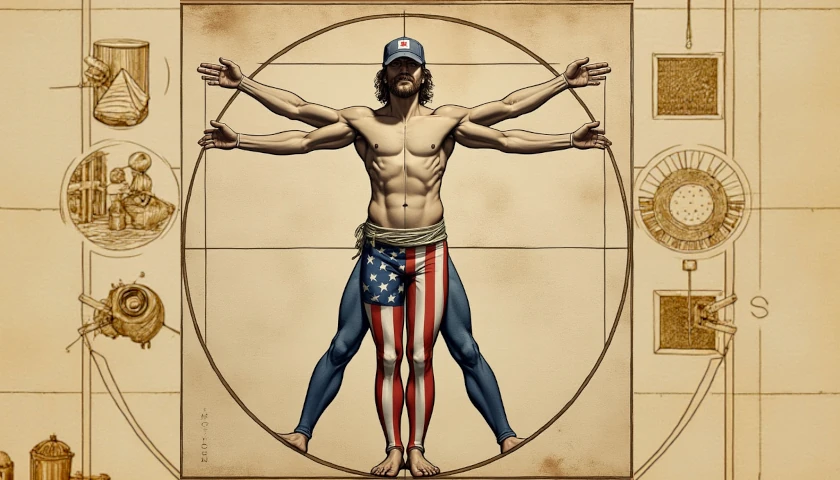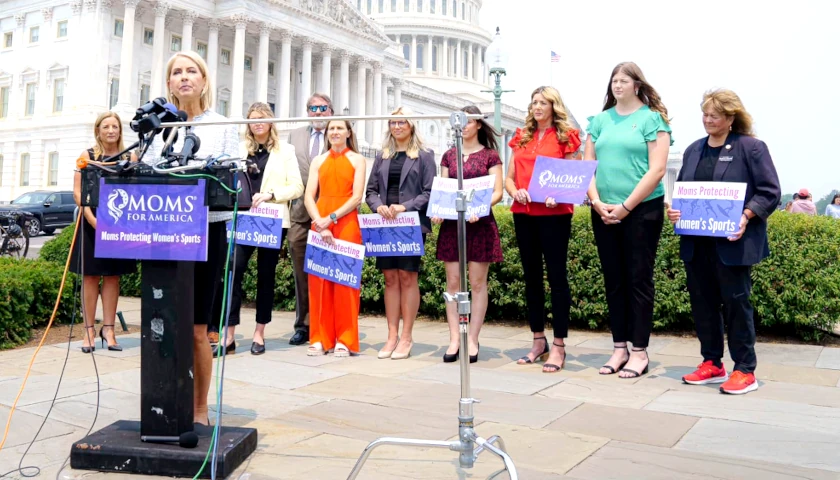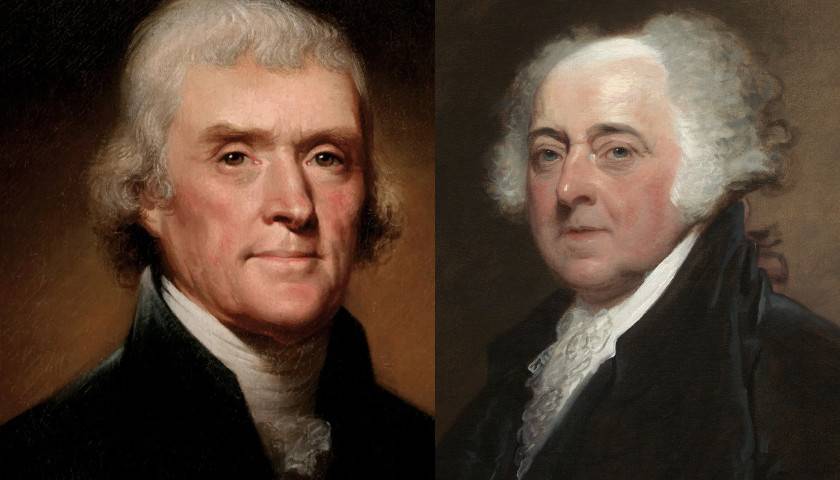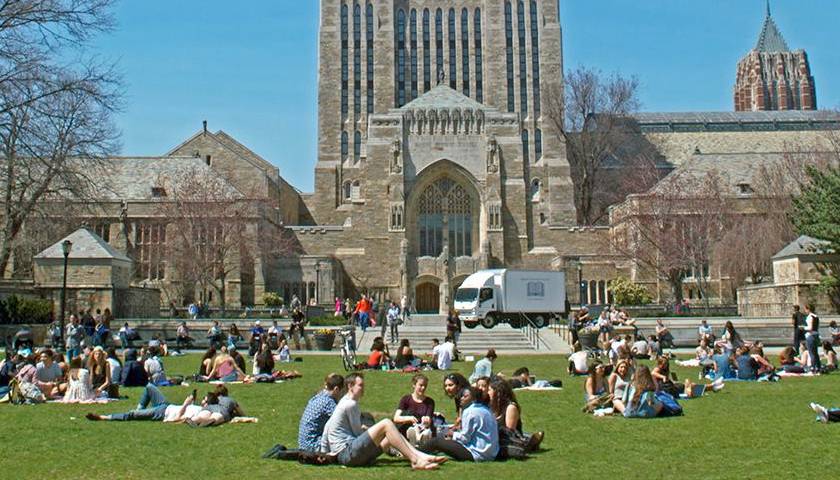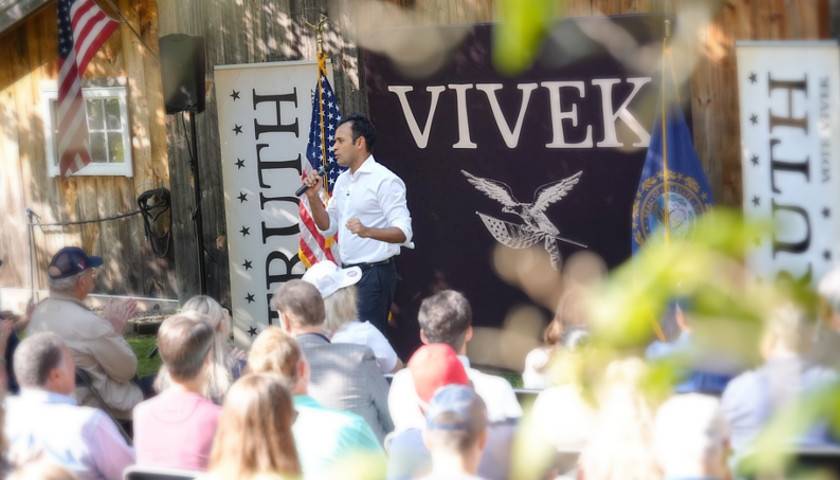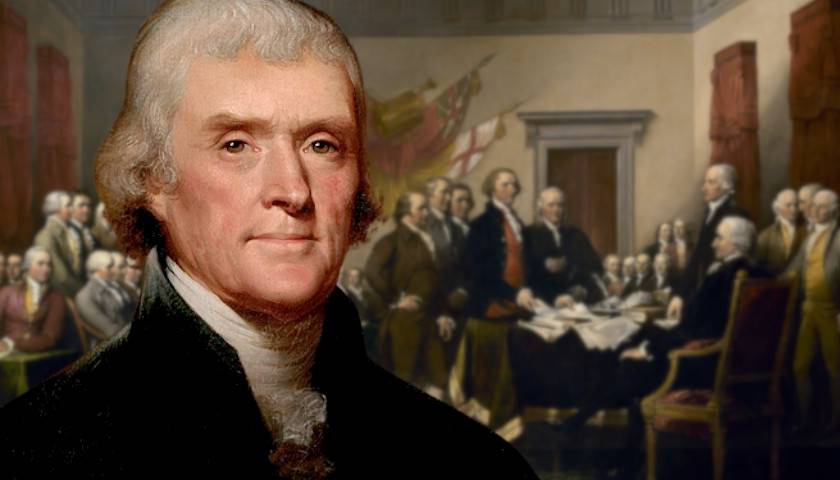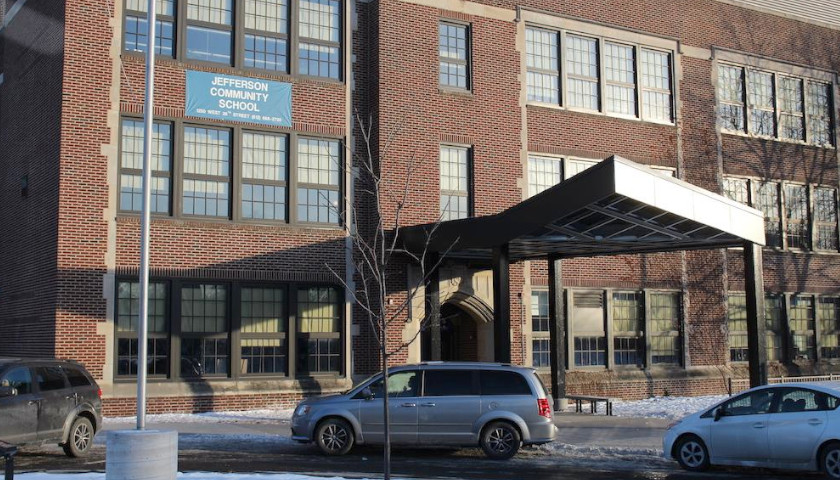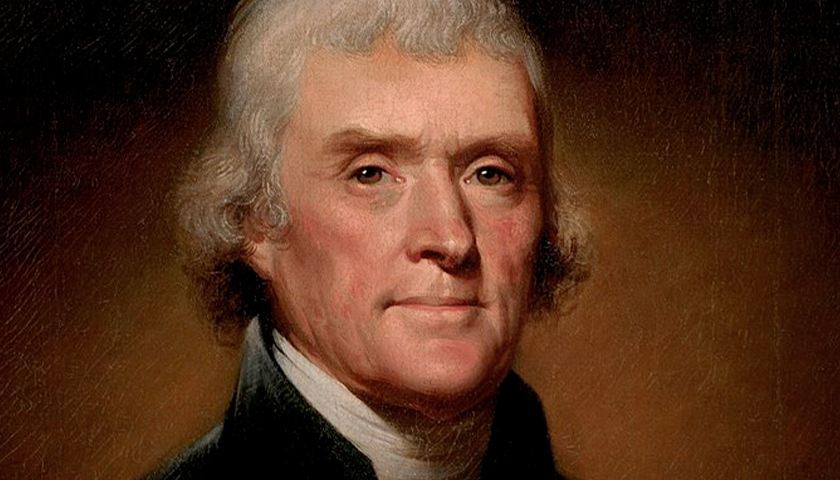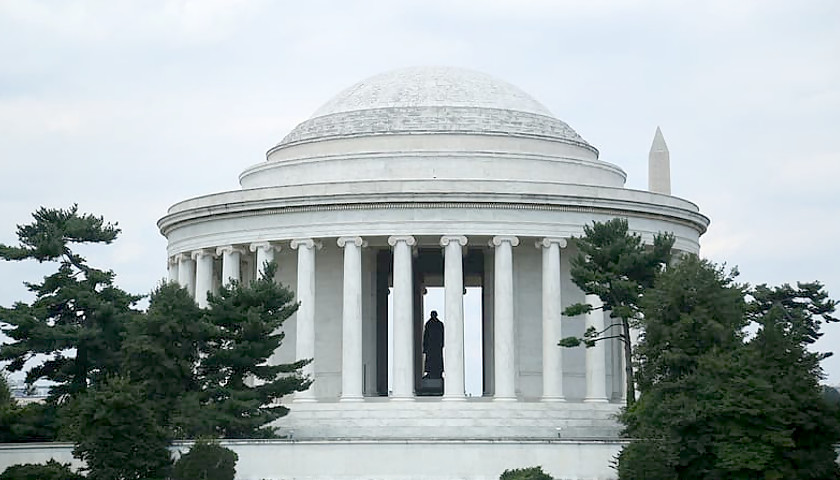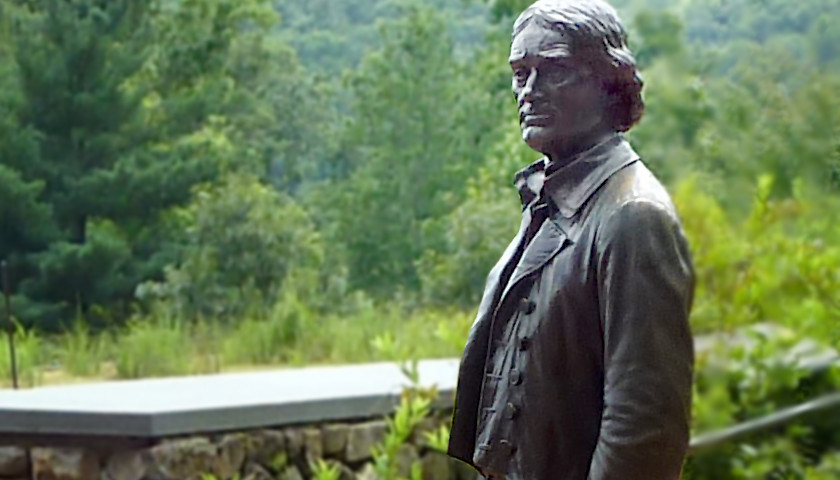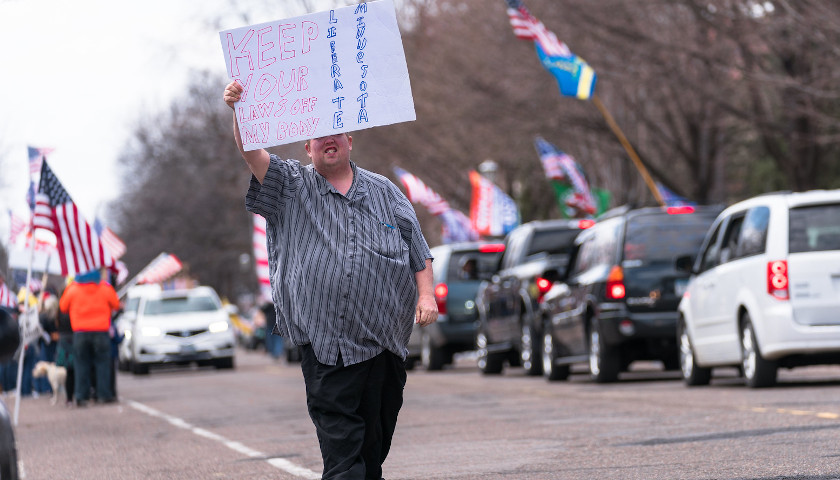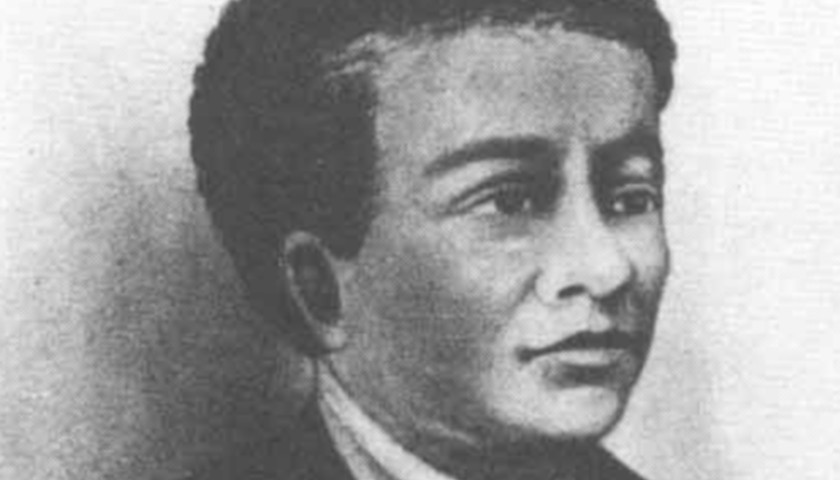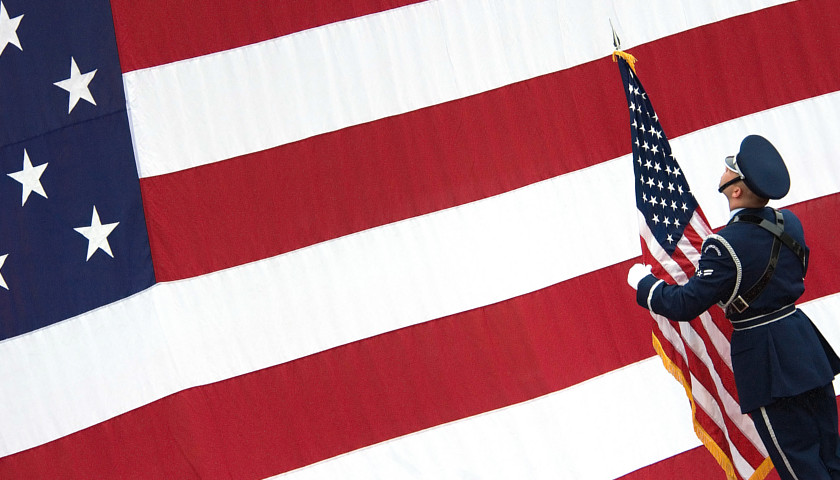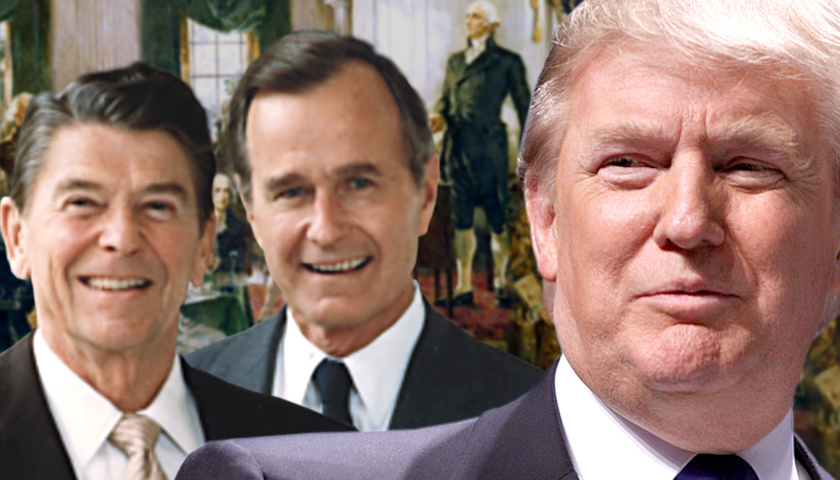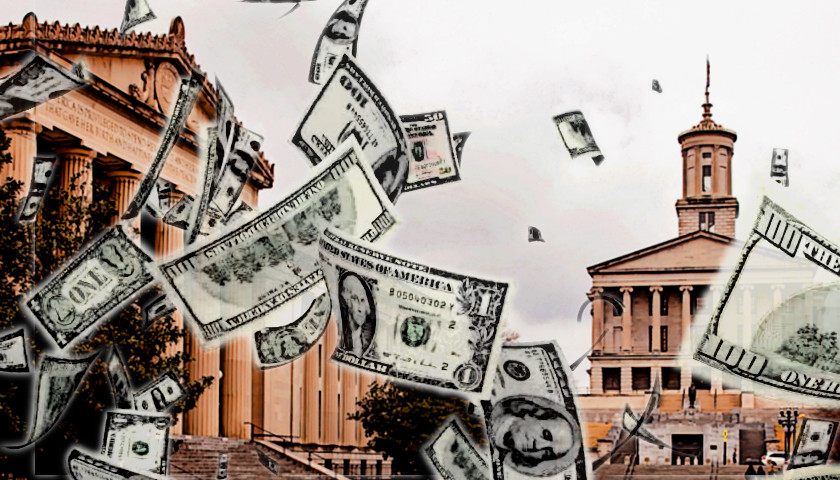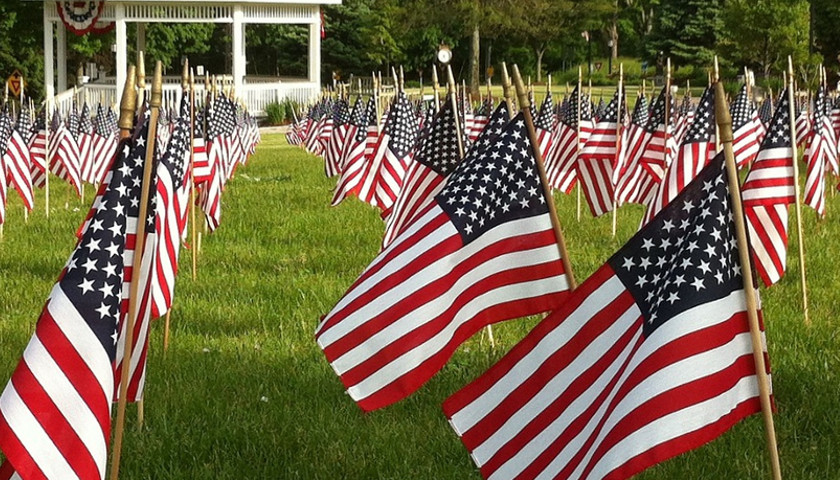The songwriter, actor, country/western singer, musician, U.S. Army veteran, helicopter pilot, accomplished rugby player and boxer, Rhodes scholar, Pomona College and University of Oxford degreed, and summa cum laude literature graduate, Kris Kristofferson, recently died at 88.
Read MoreTag: Thomas Jefferson
Commentary: Don’t Let the Department of Education Silence Our Kids
The Founding Fathers recognized that an educated citizenry was vital to the survival of our republic. Thomas Jefferson, for example, saw education as essential to giving every citizen the opportunity to participate meaningfully in a free society.
Writing in 1818, our third president described public education as “the means to give every citizen the information he needs for the transaction of his own business … to express and preserve his own ideas … to improve his morals and faculties … to understand his duties, and to exercise his rights.”
Read MoreCommentary: A Spark In the Minds of the People
What really happened in New York this past week in the prosecution of Donald Trump? The breathless paid script readers of the controlled “press” wanted to gloat and heap disdain on the former President. Their glee was only matched by the vapid analysis of how the verdict might impact the election this year. And a few of the quislings of the Republican In Name Only (RINO) persuasion began to daydream about a return to the Republican Party that played the role of shill to the state, supporting ever more wars of imperial design and furthering the “project” of globalization.
But of course all of these things are mere momentary delusions. In the scheme of things, the Soviet show trail in New York will have little impact on any of these things. It will, however, leave a lasting mark.
Read MoreCommentary: The Most Important Trait for Yale’s Next President Is Courage
On August 31, 2023, Yale’s 23rd president, Peter Salovey, announced he would be stepping down. Since this announcement, much has transpired in the world of American higher education: the resignation of Harvard and UPenn presidents, the creation of campus encampments nationwide, and the cancelation of commencements at Columbia and USC. These developments point to an American higher education system that is malfunctioning. The breakdown we are witnessing at Yale’s peer institutions will continue until leaders are chosen for their courage to apply wisdom to divisive issues.
America’s Founders understood the importance of higher education. Of all his great accomplishments, only three made it onto Thomas Jefferson’s headstone: Author of the Declaration of American Independence, of the Statue of Virginia for Religious Freedom, and the father of the University of Virginia. Jefferson knew that America’s ability to be great and good – UVA’s motto – depended on the presence of high-functioning universities. America’s first polymath, Ben Franklin, famously said, “An investment in knowledge pays the best interest.” Framers like Franklin and Jefferson understood the value of academic pursuits, and their example lit a spark that motivated generations of Americans to pursue higher education.
Read MoreRamaswamy on Vice Presidential Possibilities: ‘I Have No Plan B’
Ohio businessman and GOP presidential hopeful Vivek Ramaswamy may still be a relative “long shot” in a Donald Trump-dominated contest, but he insists he’s not running for No. 2.
In short, there is “no Plan B,” Ramaswamy says.
Read MoreCommentary: Thomas Jefferson’s Meaning of ‘The Pursuit of Happiness’
The idea of the “pursuit of happiness” is in our societal DNA. Yet, this “unalienable right,” immortalized in the Declaration of Independence, has often puzzled people. What exactly did Jefferson mean?
Most people think of happiness as feeling good, but that is not what Jefferson meant. Pleasure and happiness are not the same. Our happiness does not depend upon everything going right in our life or getting what we want.
Read More‘Checkered Histories’: Minneapolis Renames School Named After Thomas Jefferson
Minneapolis Public Schools approved Tuesday the name change of two schools in the district, a process that began in 2020.
Sheridan Dual Language Elementary and Jefferson Global Studies & Humanities Magnet School will have new names in July after receiving approval from the school board this week, according to a press release from MPS.
Read MoreCommentary: The War on Thomas Jefferson
The final decision, after years of debate, was made on Oct. 8 to remove from the New York City Council chambers the statue of the man we all know to have been a dreaded slaveholder—to the tune of 600 over his lifetime—Thomas Jefferson.
Despite that, writing at Bari Weiss’s Substack, political science professor Samuel Goldman, with whom I concur, is less than happy.
“The removal is disgraceful. Unlike monuments to Confederate leaders that display them in full military glory, Jefferson is depicted as a writer. Holding a quill pen in one hand and the Declaration of Independence in the other, he is clearly being honored for composing an immortal argument for liberty and equality.”
Read MoreCommentary: D.C. Mayor’s Committee Recommends Removing Jefferson Memorial and Washington Monument
Holy Cow, the cancel culture has sunk even further. Thomas Jefferson, James Monroe, Andrew Jackson, William Henry Harrison, John Tyler, Zachary Taylor, Alexander Graham Bell, Ben Franklin, Woodrow Wilson, and many more names from American history are now personas non grata in Washington DC. A committee formed by the mayor has recommended taking their name off city-owned buildings. They also recommended removing federal assets such as the Jefferson Memorial and Washington Monument.
D.C. Mayor Muriel E. Bowser formed the District of Columbia Facilities, and Commemorative Expressions Working Group, also known as the DC FACES Working Group.
Read MoreCommentary: Why Do They Hate Thomas Jefferson?
When Al Sharpton demanded, three years ago, that the funding for the Jefferson Memorial’s upkeep be cut off, people laughed. But they’re not laughing now. Actually, they’re still laughing, but now it’s more of a nervous chuckle in dismal expectation of what’s to come. First it was Robert E. Lee, then it was Christopher Columbus, and now it’s old TJ himself.
Read MoreCommentary: Are States That Refuse to Reopen Losing the Consent of the Governed?
What happens to a government when the consent of the governed breaks down? History has many instances of this some ending with peaceful transformation, others with successful revolution as in our own history and still others with military crackdowns as we currently see in Hong Kong.
Thomas Jefferson wrote in our nation’s founding document, the Declaration of Independence, which was written as a series of reasons why the American colonists no longer accepted the rule of King George III. The opening two paragraphs of this seminal document used to be memorized by school children as part of their school exercises, a practice which was largely abandoned in the 1960s. So as a refresher, here is what Jefferson penned:
Read MoreAmerican Inventor Series: Benjamin Banneker, a Black Tobacco Farmer Who Surveyed the Nation’s Capital
Benjamin Banneker was much more than just an inventor. As a mathematician, astronomer, landowning farmer, writer, and surveyor, Banneker was one of the most influential African Americans alive during America’s infancy.
Read MoreJC Bowman Commentary: Lives, Fortunes, and Honor
JC Bowman writes: Freedom should never be taken for granted. Today we are debating the very concept of what it means to be a citizen of the United States of America. While many citizens are very passionate about our country, others seem disillusioned and some openly hostile. It is why the Declaration of Independence is such an important document. It expresses what it means to be an American.
Read MoreCommentary: The Turbulent True History of the ‘Good Ole Days’ of Politics
by Jeffery A. Rendall It’s only natural in times of political turmoil – like what we’re experiencing now and for as long as I can remember – that people harken back to yesteryear for a more tranquil period when everyone got along swimmingly and went out for drinks after…
Read MoreJC Bowman Commentary: Dark Money + Union Money = Corrupt Politics
This election cycle we have already seen an influx of unaccountable cash, known as dark money, which pours into our state. Outside money hurts more than it helps. Tennessee voters were not swayed by big spending outsiders. It is worth noting the message the outsiders bring is almost always negative. If you don’t think this is an erosion of democracy, you’re not thinking about it hard enough. The formula is simple: Dark Money + Union Money = Corrupt Politics
Read MoreJC Bowman Commentary: Reflecting on Memorial Day
We need to take a minute to THANK those veterans who gave their lives so we Americans can enjoy our liberty.
Read More
